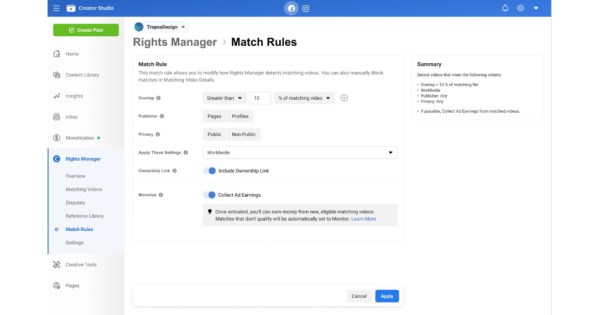The internet has made it possible for individuals to create content and monetise it over various social media sites such as Twitch, YouTube, Instagram, X (formerly known as Twitter) and others.
As most of these social media websites are based abroad, how will an individual who earns money from these websites get taxed?
How will earnings from social media be taxed as per income tax laws?
The income earned from social media sites such as X, Instagram, YouTube will be taxed depending on the head under which it is classified for an individual. It can be classified either under ‘Income from business and profession’ or ‘Income from other sources’.
“If the person receiving income from social media websites is entirely engaged in content creation on a whole-time basis and revenue earned from social media is the primary source of income, then it will be classified under profits and gains from business or profession and taxed accordingly. If the person is casually earning and it is not a substantial amount in comparison to his other incomes, then it is classified as income from other sources and taxed accordingly,” says Avinash Shekhar, CEO and Founder, TaxNodes, a tax filing platform.
“The level of activity as well as the quantum of income would be relevant to decide in which head income from social media will be taxed,” said Aarti Raote, Partner, Deloitte India, a business consultancy company.
“If the level of activity is irregular and the earnings generated from a tweet is a “one-off situation”, the income tax authorities might contend that the income should be categorised as income from other sources. The criteria for determining this classification will be influenced by the unique circumstances of each individual case,” says Neeraj Agarwala, Partner, Nangia Andersen India, a business consultancy company.
What is the income tax rate applicable for incomes earned from social media?
There is no special income tax rate specified for income from social media websites. All the incomes are to be reported in the income head (as applicable) and after claiming applicable deductions, these incomes will be taxed at income tax slab rates applicable to them.
What are the deductions that will be allowed for social media incomes?
“The income tax rules for claiming deductions under business income and income from other sources are different. Only expenses that are directly and explicitly incurred wholly for the purpose of generating that specific income are permitted as deductions if income is taxed as other sources. In contrast, in the case of business income, the costs incurred for the operation of the business are eligible for deduction. It is easier to claim expenses as deduction under business income than other sources head,” says Agarwala.
Agarwala explains with an example, “Consider the scenario involving fees paid for obtaining a verification tick, commonly known as the blue tick, on your profile. In the context of monetizing your X (formerly Twitter) account, one of the prerequisites is to maintain an active follower count of 500 or more. It could be argued that having the verification tick on your profile aids in maintaining the required follower threshold, thus positioning it as a business-related expense. However, because the verification tick is not a direct necessity for generating income, it might not meet the criteria of being an expense ‘wholly and directly’ incurred for the purpose of earning that income. Consequently, this expense might not qualify for deductions under the category of ‘income from other sources’.”
An individual should keep a record of all expenditures in case the income tax department asks in the future. An individual is required to undergo certain compliances such as tax audit, maintenance of books etc. if income is taxed as business income.
Is Tax Deducted at Source (TDS) applicable on these incomes?
“TDS will be applicable irrespective of payment made by an Indian or foreign entity of the social media company. If the payment is made by an Indian entity, TDS would be deductible as per Section 194J of the Income tax Act, 1961. The tax will be deducted at 10% if total payment exceeds Rs 30,000. If the income is received from foreign entity, TDS would be applicable depending on the country’s laws. One needs to check Double Taxation Avoidance Agreement (DTAA) to see if the tax credit can be availed for tax deducted outside India,” says Agrawala.
Shekhar, however, differs in his opinion about TDS on these incomes from Agarwala. Shekhar says, “The deduction of TDS depends on the nature of the activity. One needs to read the revenue sharing terms of the social media company. One needs to see if the technical definition of ‘work’ meets the Section 194C requirement for the TDS to be applicable. If TDS is applicable, it will be deducted under Section 194J.”
Does an individual need to register for GST for such incomes?
The incomes earned from social media websites can be considered as business income. So, in this case, does Goods and Services Tax (GST) registration need to be undertaken?
As per tax experts, GST registration will have to be undertaken on these social media website incomes if the total income crosses the specific threshold. “According to GST regulations, services provided by YouTubers, influencers, and bloggers are categorised as Online Information and Database Access or Retrieval Services (OIDAR). This covers services that use technology to distribute data online. If an influencer’s annual income crosses Rs 20 lakh (or Rs 10 lakh in special category states), they must register under GST. GST at 18% is applied to services offered by registered influencers and bloggers,” says Abhishek Soni, founder Tax2Win, a tax filing platform.
A GST-registered individual is required to raise and issue an invoice on the social media websites (X, etc) and mention all details including GST number on the invoice. “Regarding when and how to raise the GST invoice, it is a matter of understanding between the social media platform and the individual,” says Agarwala.
How to report income from social media in ITR
The reporting of income in the ITR form will depend on who is paying the income, i.e., an Indian company or a foreign company. “The location from where the payment is being sent is important for ITR purposes,” says Shekhar.
“If the payments are received from a foreign company, then it is a foreign income, and the recipient has to file an ITR irrespective of the basic exemption limit,” said Shekhar.
“If the payment is made via an Indian subsidiary, then the source and receipt both are in India, so there is no concept of foreign income and schedule FA. It is advised to read the communications received from social media companies to understand the location of service, based on which tax disclosures are varying,” said Shekhar.
As per the income tax laws, in case the income is from a foreign country, then company details are also required to be submitted in the FA schedule while filing ITR.









